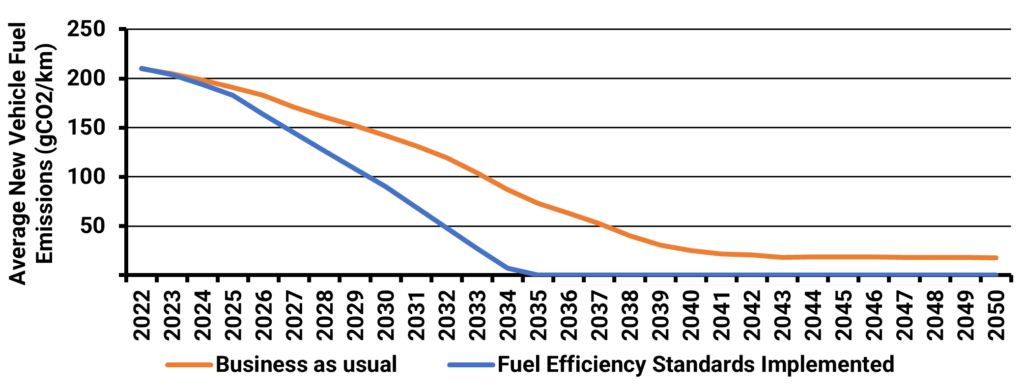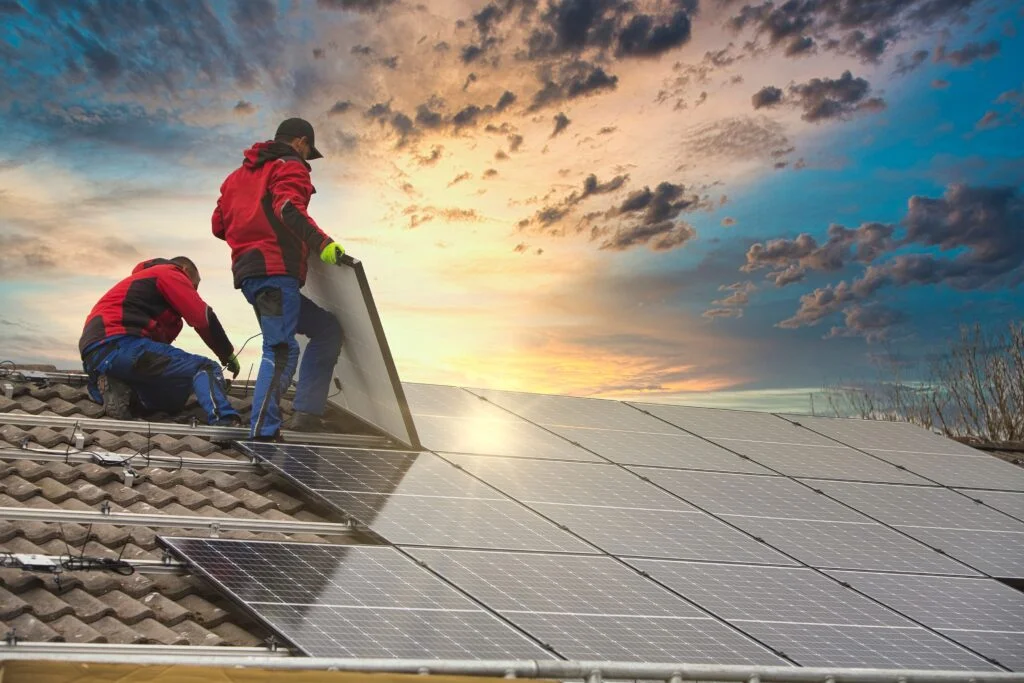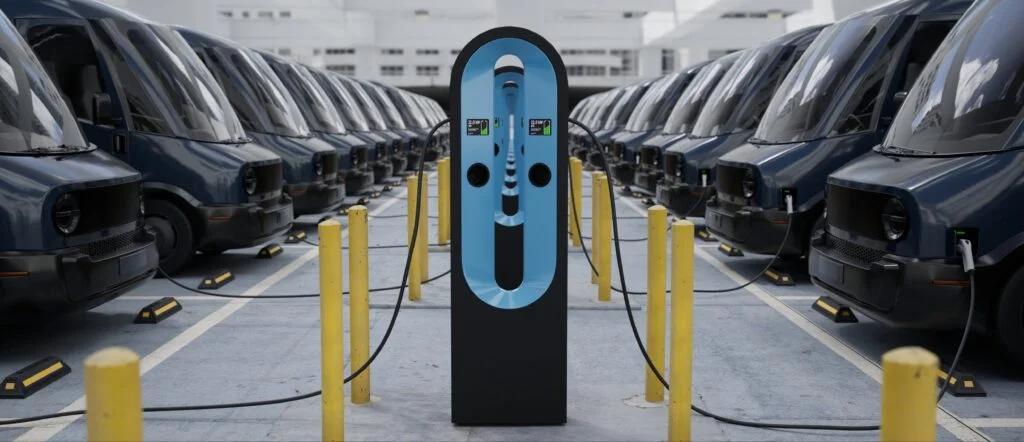
Bridging the Skills Gap: Workforces for Electrification
Australia’s clean energy transition demands a skilled workforce. Energeia’s analysis reveals urgent needs, strategic solutions, and policy pathways to bridge the electrification skills gap and
The Electric Vehicle Council (EVC) is a national advocacy body that represents the electric vehicle industry in Australia, with members across the value chain. The EVC is responsible for advocating to policymakers and regulators in Australia on behalf of these members. As a component of their advocacy, the EVC developed materials in support of a vehicle fuel efficiency standard to align transport decarbonisation policy in Australia with the global community.
The EVC worked to develop an evidence base to demonstrate the impact of vehicle fuel efficiency standards on vehicle emissions by 2050, aligning with Australia’s net zero emissions targets. This evidence base was developed for submission to the federal government’s consultation process regarding the implementation of a fuel efficiency policy.
Energeia’s consulting services were contracted by the EVC to develop stock-and-turnover forecast modelling of the Australian road fleet to demonstrate the impact of a fuel efficiency policy. Existing constraints within the industry were modelled, including the ability of manufacturers to supply complying vehicles under the forecast uptake trajectory, the availability of fit-for-purpose vehicles by use case, and the availability of public charging infrastructure. Energeia supported this analysis by engaging with vehicle manufacturers to gauge the impact of a fuel efficiency policy on the supply of vehicles. Using our existing evidence-based uptake modelling and leveraging previous work in intelligence and data, Energeia developed analysis for the EVC to demonstrate the forecasted impact of a fuel efficiency standard on light vehicle uptake and emissions by 2050.

Energeia’s data analysis compared the impact of business-as-usual vehicle sales against a sliding scale drop in allowable tailpipe emissions as prompted by 2035 bans on the sales of new emitting vehicles passed by the European Union and the UK. The outcomes demonstrated reduced emissions by 2050 and a lower cost outcome for consumers. Energeia’s results provided guidance to the EVC on the level and type of fuel efficiency to advocate for to the federal government.
For more information or to discuss your specific needs regarding EV data forcasting and modelling, please request a meeting with our team.
For more detailed information regarding key challenges facing electric vehicle uptake, please see Energeia’s Power Session webinars and associated materials.

Australia’s clean energy transition demands a skilled workforce. Energeia’s analysis reveals urgent needs, strategic solutions, and policy pathways to bridge the electrification skills gap and

The AEMC partnered with Energeia to explore how flexible Consumer Energy Resources (CER), like solar, batteries, electric vehicles, and smart appliances, can reduce costs and

Energy Queensland collaborated with Energeia to address financial barriers in EV charging infrastructure, focusing on high network tariffs and demand charges. The study evaluated alternative
For more information or to discuss your specific needs regarding EV data forcasting and modelling, please request a meeting with our team.
For more detailed information regarding key challenges facing electric vehicle uptake, please see Energeia’s Power Session webinars and associated materials.
Sydney Office
Energeia Pty Ltd
WeWork
L1, 1 Sussex St
Barangaroo NSW 2000
Phone: +61 (0)2 8097 0070
ABN: 15 134 783 412
consulting@energeia.com.au
US Office
Mansion Square
Suite 380, 132 E Street
Davis, CA 95616
Phone: +1 (530) 302-3861
Fax: +1 (530) 419-2572
USA@energeia-usa.com
energeia-usa.com
